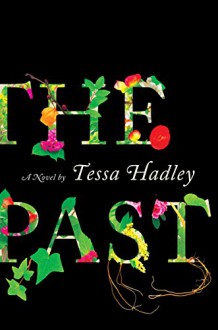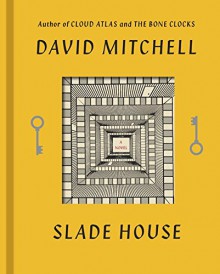

Love the cover--if only the story were as strong.
As I read this novel, I felt such a sense of foreboding. Happy family, multiple generations, nosy neighbor, "the past", young lovers, missing dog, new wife, creepy cottage, old family home. What would go wrong? It felt creepy.
In the end, not so much. Nothing particularly unusual (well maybe a touch). Maybe I read the foreboding into it? Meh.
Actually, I think the cover introduces a bit of foreboding. Of the old, rundown, and overgrown cottage sort. Hmmm.

Shamela gets a solid 3.5 stars: It is quite funny—though only if you have read Richardson's Pamela! Otherwise many of the jokes will not work. Unfortunately, Shamela is only about 50 pages.
Joseph Andrews gets 2 stars: It certainly has its moments. I found parts 1, 3, and 4, to be the strongest. Part 2, though, I found to be long and tiring—and I did not like the character of Parson Adams, even if he was meant to represent someone or a certain sort of Parson. Again, it help to have read Pamela (as Joseph Andrews is meant to be her brother), though a recent reading of Don Quixote would also help (I read it decades ago).
As with many of these 18th century novels, footnotes are needed to understand the many references to events, laws, and people that are referenced or represented. It makes the story a bit hard to follow and hard to fully comprehend—even though it might have been quite funny to those reading it when it was written.

I guess this book really comes "after" The Bone Clocks—or follows up on something in it? I haven't read The Bone Clocks, and I don't know what a bone clock is (the term is mentioned in Slade House).
But this does stand on its own—I think. I liked it, but mostly it reminded me of China Miéville's short story about the missing package that appears in Looking for Jake, which is over 10 years old. I feel like I have read something else that is very similar, but can't place it now.
So—good, but it didn't feel that original to me. It also felt a bit unfinished.

A classic McEwan in that this novel is not so much a story as a study.
Jeremy, orphaned as a child and raised half-heartedly by his single mom sister, became very close to his inlaws. This novel is his trying to piece together and understand the reasons for their extended (decades long) separation. Basically it sounds like a bit of misunderstanding and a lot of stubbornness and unwillingness to understand the other.
Overall OK--the second half was more interesting. Not my favorite McEwan by a long stretch.